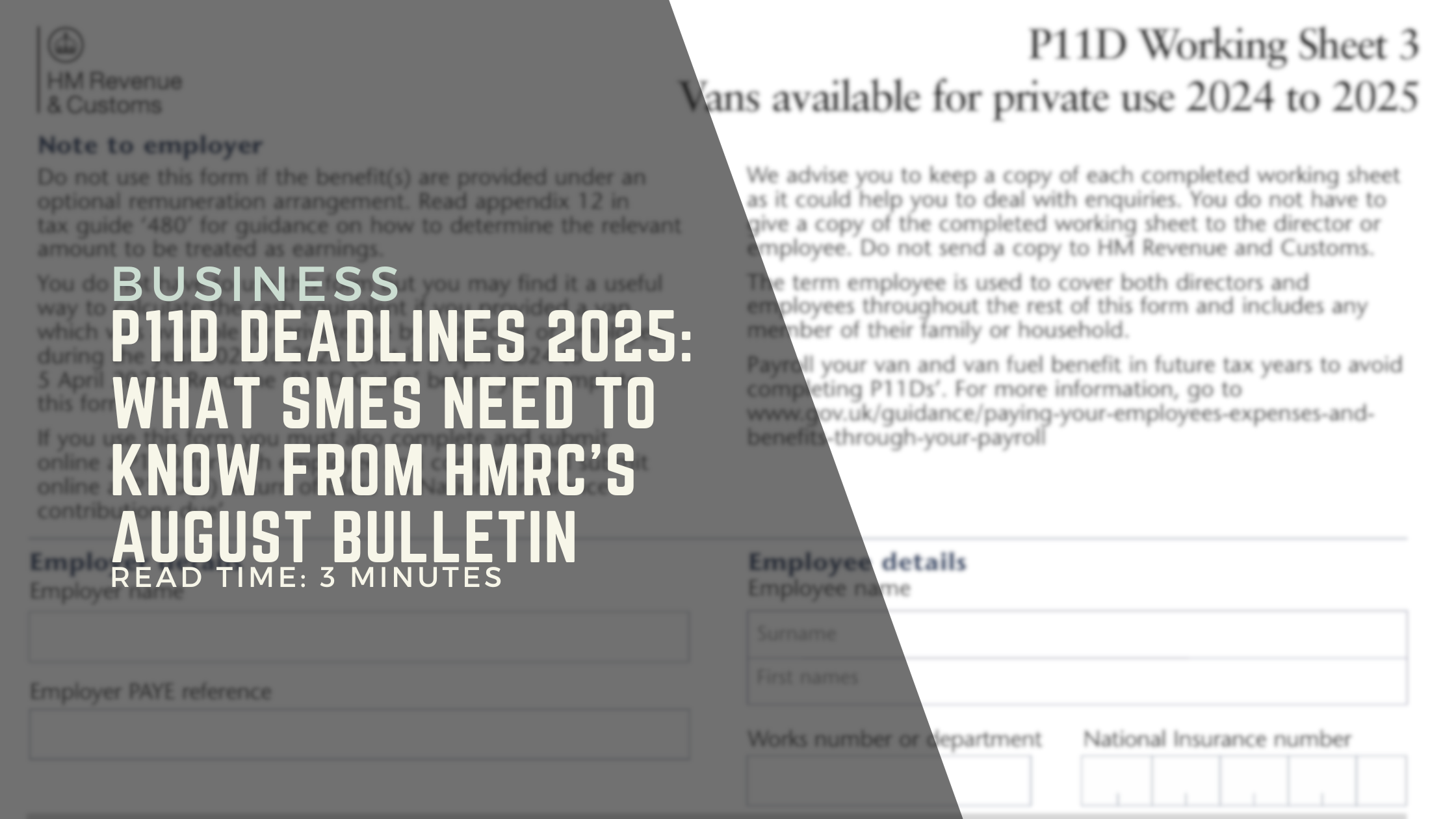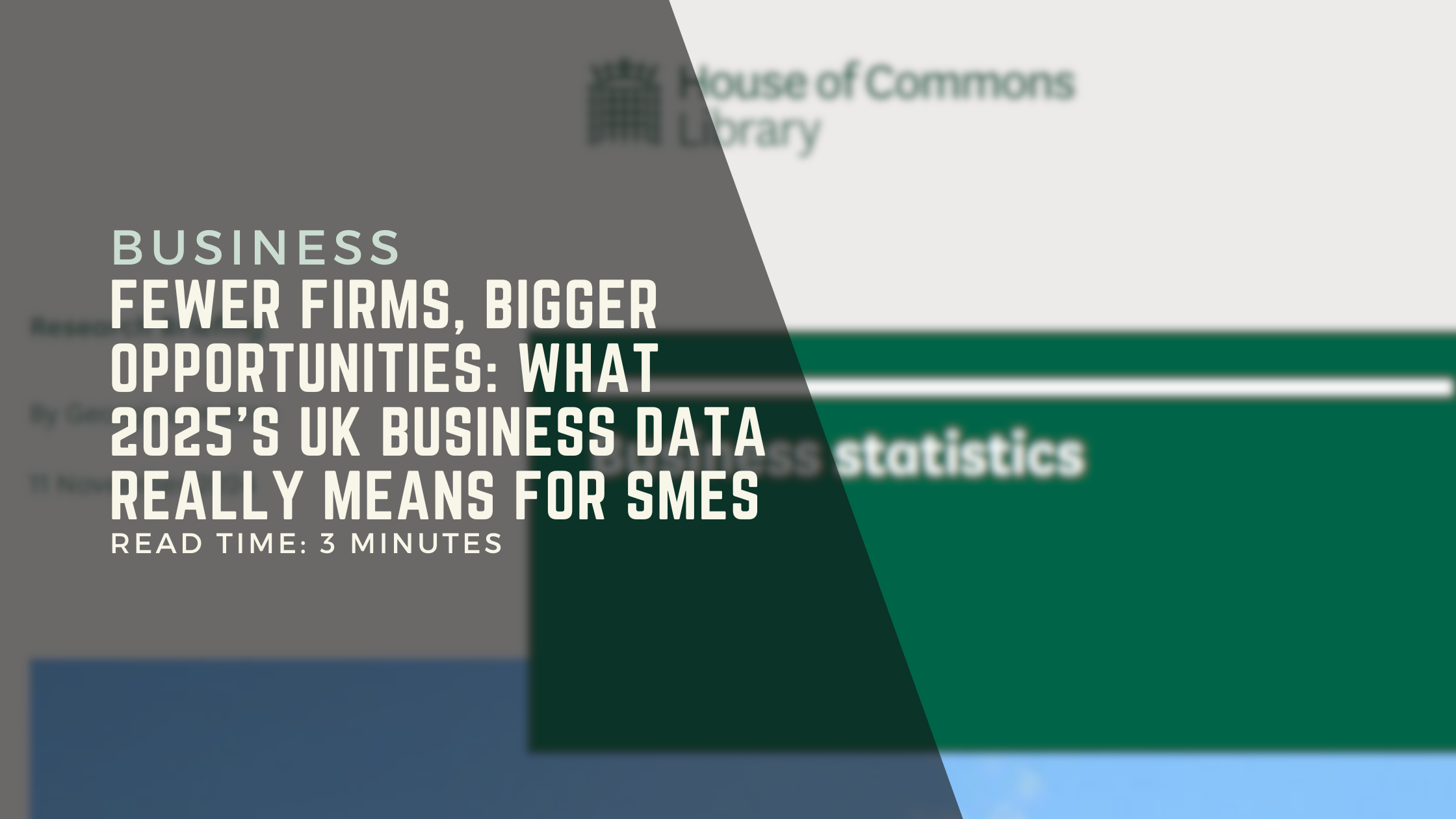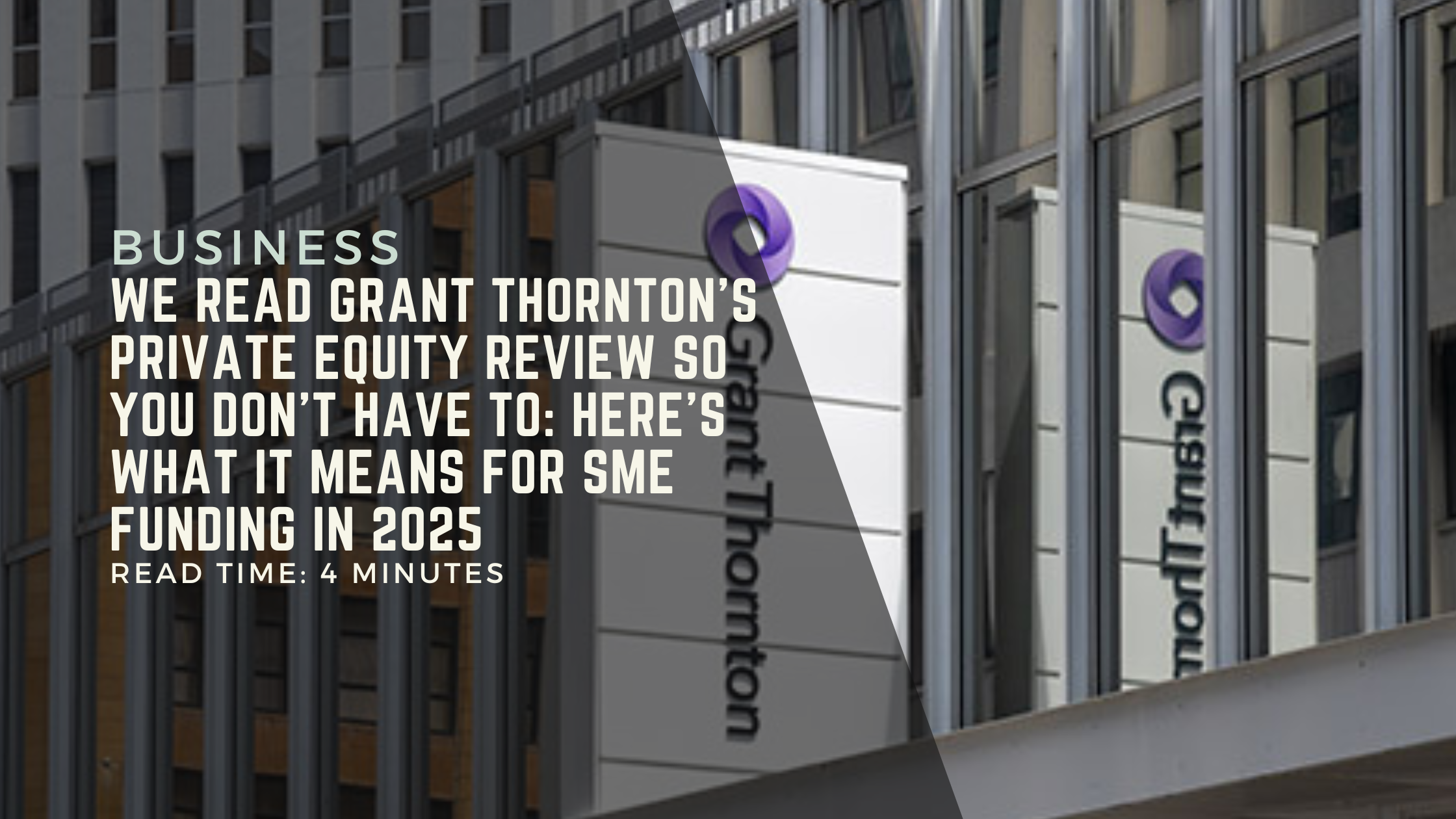If your business provides employees with benefits in kind (BIK), such as company cars, health insurance, or other perks, you must report them through a P11D form, with a P11D(b) for Class 1A National Insurance contributions.
Missing deadlines not only triggers penalties but can also complicate PAYE records, leading to disputes with HMRC. In the latest HMRC Employer Bulletin (August 2025), clear reminders have been issued to help employers get filings right.
Key P11D Deadlines for 2025
6 July 2025 — Deadline to file P11D and P11D(b) forms for the 2024–25 tax year.
22 July 2025 — Payment deadline for Class 1A NIC (if paying electronically).
19 July 2025 — Payment deadline (if paying by post).
How to File P11D and P11D(b)
Employers must now file online only, either through:
HMRC’s PAYE Online service, or
Commercial payroll software.
What to File
A P11D for each employee receiving taxable benefits (unless fully payrolled).
A P11D(b) if you’ve provided any benefits or non-exempt expenses.
A declaration of “nothing to declare” only if HMRC has requested it.
Common Filing Mistakes SMEs Should Avoid
HMRC has flagged several recurring errors:
Using incorrect start/end dates for company cars.
Omitting approved CO₂ emission figures for hybrid or electric vehicles.
Filing separate P11D(b)s for directors and employees (only one should be submitted).
Submitting returns in batches across different days, all must be filed together.
Tip for SMEs: If you frequently offer benefits, consider payrolling benefits and expenses from the 2026–27 tax year onwards. This removes the need for separate P11D forms.
PAYE Settlement Agreements (PSA)
Alongside P11Ds, many SMEs use a PAYE Settlement Agreement (PSA) to simplify tax on certain benefits like staff entertainment or small perks.
PSA calculations must be submitted online.
Payment deadlines: 19 October 2025 (post) / 22 October 2025 (electronic).
You must group costs for each benefit type (e.g., all entertainment costs together).
This reduces admin, but SMEs should ensure calculations are accurate to avoid interest on late payments.
New PAYE Dispute Process
From 31 July 2025, employers must report PAYE disputes via HMRC’s new online form. From 31 August 2025, disputes will no longer be accepted via phone or webchat.
This change streamlines the process but places the onus on SMEs to adopt HMRC’s digital channels.
Cashflow Strains: How SMEs Can Ease the Burden
Tax deadlines like P11D(b) and PSA payments often clash with seasonal business cycles. For example:
Retailers gearing up for Halloween and Christmas often face large VAT bills at the same time as PAYE deadlines.
SMEs in hospitality may have high payroll outgoings in summer, leaving little room for Class 1A NIC payments.
Solution: Many SMEs now use HMRC funding or VAT loans to spread the cost of lump-sum tax bills. These short-term facilities ease cashflow, protect margins, and allow businesses to invest in stock, marketing, or staffing during peak seasons instead of tying up liquidity in tax payments.
Action Plan for SMEs
Review your filings: ensure P11D and P11D(b) are submitted online if not already done.
Check PSA obligations: submit calculations well before the October deadline.
Avoid penalties: double-check CO₂ data and car benefit reporting.
Plan cashflow: consider revolving VAT facilities or HMRC funding to balance PAYE and tax deadlines with seasonal business needs.
Look ahead: register for payrolling benefits before April 2026 to simplify future reporting.
To Wrap Everything Up
The HMRC Employer Bulletin August 2025 is clear: SMEs must stay on top of P11D and PSA deadlines or risk penalties. But compliance doesn’t have to be a burden. By digitising payroll, planning ahead, and using smart finance options like HMRC funding, businesses can turn tax deadlines into opportunities for smoother growth.








